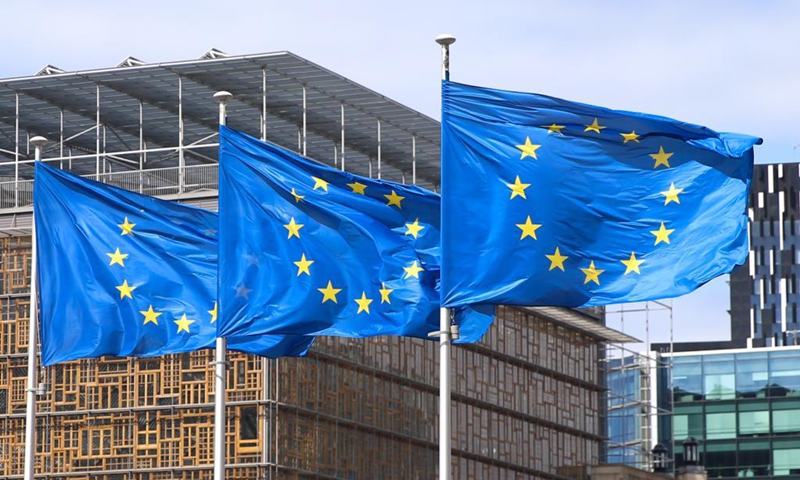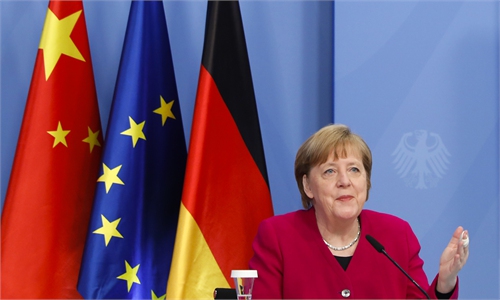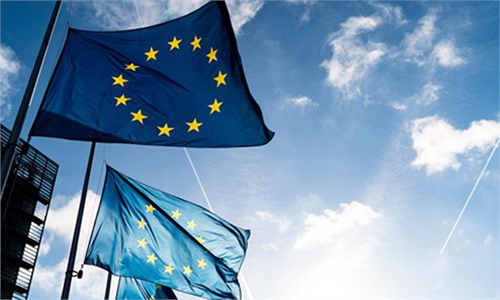
Flags of the European Union fly outside the EU headquarters in Brussels, Belgium, May 21, 2021. The European Union (EU) recommended on Thursday to open its external borders to non-essential travel into the bloc if travellers have been fully vaccinated against COVID-19. (Xinhua/Zheng Huansong)
The Council of the European Union (EU) on Monday adopted a regulation aiming to ensure that gas storage capacities in the EU are filled before the winter season and can be shared between member states in the union.The regulation provided that underground gas storage on member states' territory must be filled to at least 80 percent of their capacity before the winter of 2022/2023 and to 90 percent before the following winter. Overall, the EU will attempt collectively to fill 85 percent of the total underground gas storage capacity in the bloc in 2022.
Some member states do not have storage facilities on their territory, and so the regulation provides that they should store 15 percent of their annual domestic gas consumption in stocks located in other member states and thus have access to gas reserves stored in other member states.
European Commissioner for Energy Kadri Simson told a press conference following a meeting of the bloc's energy ministers held in Luxembourg that it was imperative that countries update their contingency plans and turn to alternative means to save on gas.
She said last week, Gazprom reduced the gas supply to companies in five member states, with 12 of the bloc's 27 member states being directly affected. Some no longer receive any gas from Russia, with exports from the country dropping by half over a year ago.
The European Commission will in July present a plan for EU countries to coordinate their preparations for further gas shocks, she said, urging governments to reduce their gas use to ensure enough storage.
Xinhua



